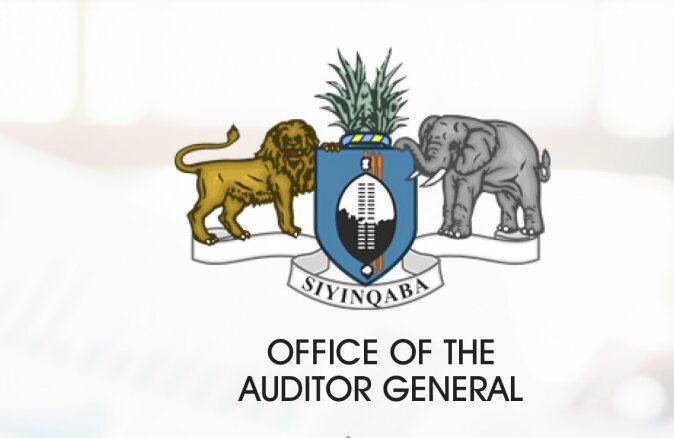By: Ntombi Mhlongo
Ratepayers are shooting themselves in the foot by failing and or delaying paying rates.
According to some municipalities, non-payment of rates makes it hard for them to implement their planned projects and offer the best in terms of service delivery. According to the Auditor-General Timothy Simelane’s Compliance Audit Report for the month ended 31 March 2021, municipalities are failing to collect revenue from consumers with five of them owed around E50 million.

In an interview with Pigg’s Peak Town Council Chief Executive Officer Mzwandile Ndzinisa, he confirmed that indeed the municipality had outstanding rates owed.
While the AG’s audit was for the year ended 2021, Ndzinisa said as at March 2022, the figure stood at E9,441,640.76. “The non-payment of rates impacts on service delivery, in the sense that the organization is unable to implement planned projects and programmes on time. Secondly, non-payment of rates causes a unhealthy cashflow, thereby leading to supplier payments default and litigation,” said Ndzinisa.
Ezulwini Town Council acting Chief Executive Officer Phuthuma Shongwe shared similar sentiments as those of Ndzinisa. Shongwe said if rate payers default on their rates, this negatively impacts local authorities as it curtails it from effectively delivering on its mandate which include but not limited to ensuring that proper infrastructure is made available and maintained, keeping the town clean at all times, streets lights are kept live at night to maintain a safe environment and well-being of the residents, visitors and businesses is ensured. “The municipality may also be not able to attract and keep qualified personnel to offer efficient and effective service delivery,” Shongwe said.
He went on to say that if the rates could be settled, the money can assist in fulfilling the growing public demand for services of the town which include more recreation facilities, youth empowerment programmes, construction of asphalt surfaced roads and improvement of storm water drainages, the digitalisation of the local authority’s services and also the upkeep of infrastructure which includes roads, street lights and waste services amongst others.
In the Compliance Audit Report, the AG has exposed the shortcomings of some of the municipalities in the country when it comes to revenue collection, raising the alarm that many of them risk severe shortcomings in future. AG Timothy Matsebula in his Compliance Audit Report which was presented in Parliament last week found that many of them were at risk of struggling to carry out their responsibilities due to liquidity challenges. Matsebula said he had drawn the attention of the Controlling Officer of the Ministry of Housing and Urban Development that in the Ngwenya Town Board, there were long outstanding rates, debtors, amounting to E12,707,792.00 included in the trade and receivables as of 31st March 2021, with no legal proceedings taken as per Section 32 of the Rating Act, 1995. This amount forms a significant part (of 99.2%) of the total receivables (of E12,814,882.00) as of 31st March 2021. The AG found that although there was an immaterial increase in the Trade and Other Receivables of E187,759.00, the balance at the year-end remained significant, as rates income stood at E11,300,509.00.
“I raised my concern to the Controlling Officer that a larger proportion of income remains uncollected, which has a negative impact on the liquidity of the entity; if 154 income is not collected on time the entity might struggle to cater for operational activities. Management had not assessed the recoverability of these balances, as there was no provision for bad debts in place,” the AG stated.
Also on the list is the Pigg’s Peak Town Council which the AG noted had long outstanding rates balance amounting to E3,425,440.00. The Malkerns Town Board is also included as it had long outstanding rates debtors amounting to E4,382,913.00, from as far back as 2016 which were included in the trade and receivables as of 31st March 2021, with no legal proceedings taken as per Section 32 of the Rating Act, 1995. This amount forms part of the total debtors as of 31st March 2021. “Management has not assessed the recoverability of these balances, as there is no provision for bad debts in place,” highlighted the AG. Ezulwini Town Council was also flagged for having a slow collection of outstanding rates. An increase in outstanding rates of E11,219,691 (63%) was noted between the two financial periods that ended 31st March 2021 and 2020.
The AG found that the rates in 2021 had increased to E29,134,613.00 from E17,914,922.00 in 2020. The disclosure note to the receivables depicts that of the E29,134,613.00, 89% (E25,988,183.00) was past due over 12 months (365 days past due). “In essence, these debts are doubtful and pose a risk of recoverability which will result in future impairment. This indicates that the collection rate of the Town Council was low and may indicate a weak (or lack of) debt management system. I am concerned that a significant proportion of the prior year’s receivables remains uncollected. This has a negative impact on the liquidity of the entity; if income is not collected on time, the entity might struggle to cater for operational activities,” the AG found.
The Vuvulane Town Board is owed E7,470,484.00 included in the trade and other receivables as of 31st March 2020, with no legal proceedings taken as per Section 32 of the Rating Act, 1995. This amount forms part of the total debtors as of 31st March 2020.






